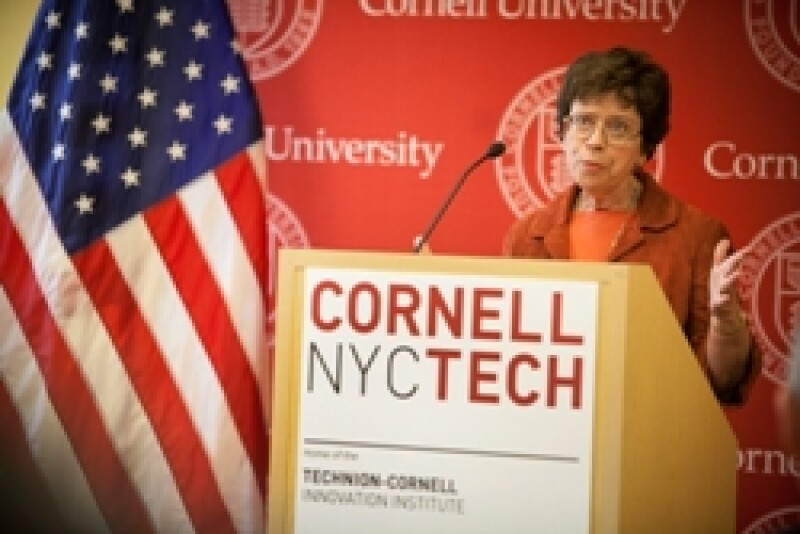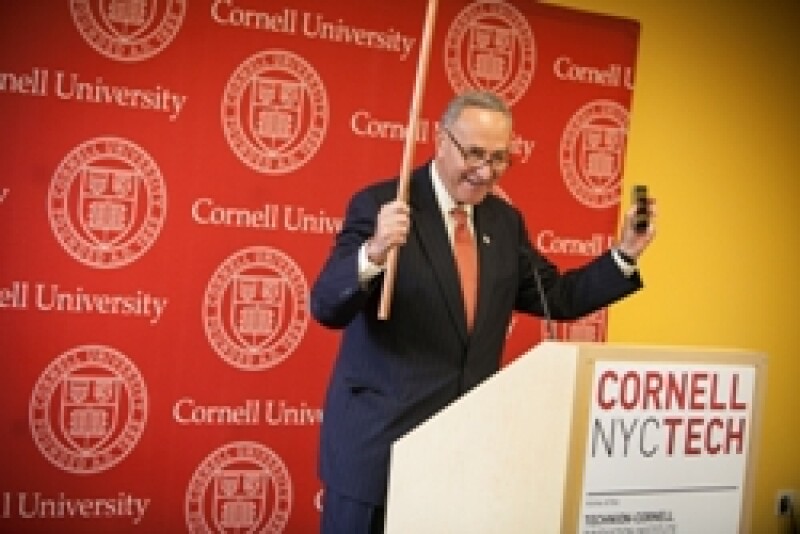The Cornell NYC Tech campus is scheduled to open in 2017 on Roosevelt Island in Manhattan. The new site will offer graduate-level training in computer science and engineering. For now, a temporary campus is located in Google’s New York office in Chelsea, Manhattan.
Today’s press conference revealed that former patent examiner Sue Purvis has also joined the temporary location, and will eventually move over to the Roosevelt Island facility to act as a liaison between government agencies and universities.

Noting that over half of tech transfer offices make less money than they spend, New York state senator Chuck Schumer said: “American universities are struggling to take technology out of the research lab and into the marketplace.” The collaboration between the Department of Commerce and Cornell is apparently meant to help bridge that gap.
Purvis’ official title is innovation and outreach coordinator, greater New York region. She will be accessible to university students, researchers, faculty and industry to answer and advise on IP-related questions, including trade mark issues. She will also be accessible to students and staff at other local universities, and plans to conduct classes that will be open to the public.
Purvis’ office – which New York Representative Carolyn Maloney dubbed an “innovation resource center” – should not be confused with the USPTO’s satellite offices. There will be no examiners based in the New York City facility, and Purvis will reside on the Cornell campus, rather than in a separate USPTO office.
However, Kappos told Managing IP he hopes Purvis will eventually be joined by additional USPTO staff. He also said that the Office is considering installing patent search and videoconferencing equipment, possibly even before the permanent facility opens in 2017.

Acting Secretary of Commerce Rebecca Blank told reporters that Purvis will act as “a conduit to all resources” at the Commerce Department and USPTO. She will be able to “answer tough questions” and let researchers and students know what tools are available to them to help commercialise their inventions. She will also conduct classes and provide one-on-one consulting.
Kappos told Managing IP that the main advantage of having Purvis at the Cornell facility is that she will be able to assess questions that arise in real time, and then get directly on the phone with the appropriate USPTO or Commerce Department staff member to solve them. This includes trade mark questions, although Purvis’ background is in patents.
“This is an experiment, but it could be transformative to the way government works with universities,” said Kappos.
He added that the Office has already had inquiries from other universities about making similar arrangements, but he has asked them to allow six months to one year before any decision is made about expanding the project.









